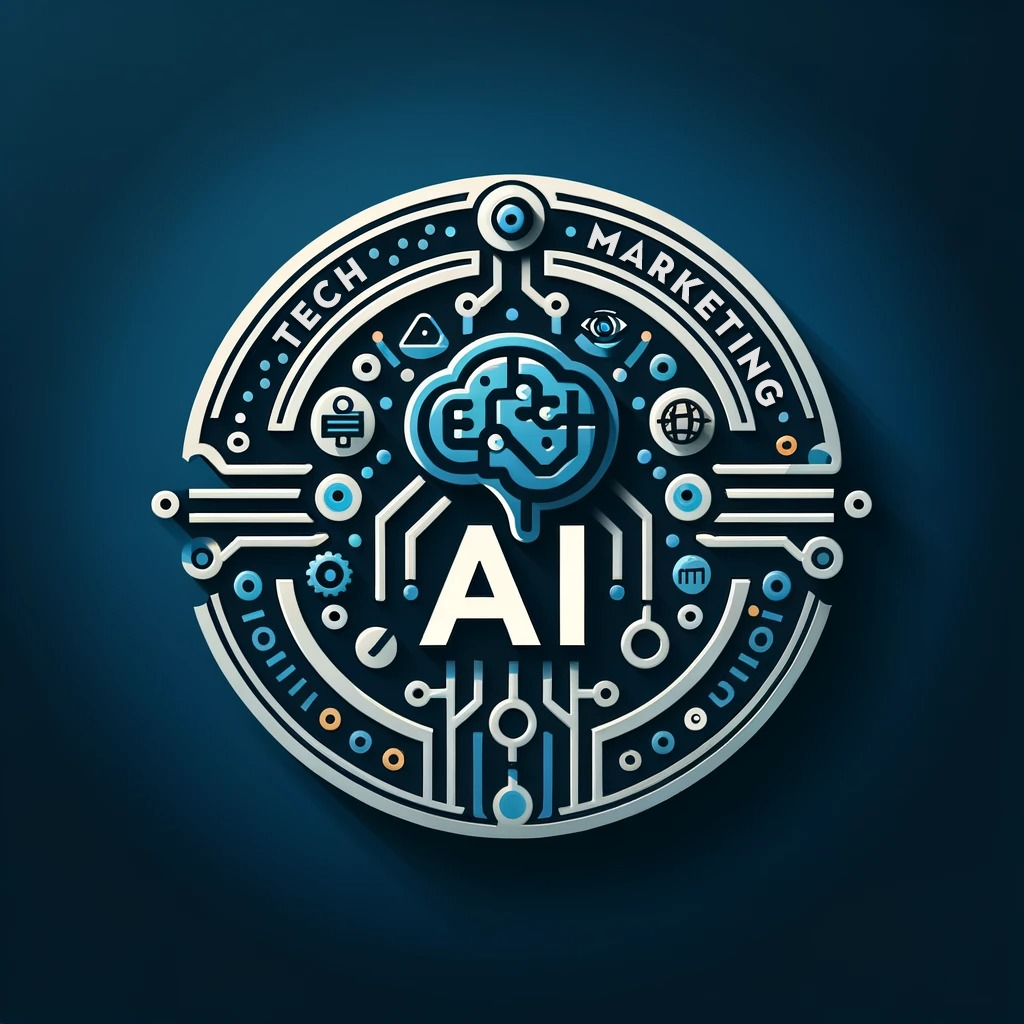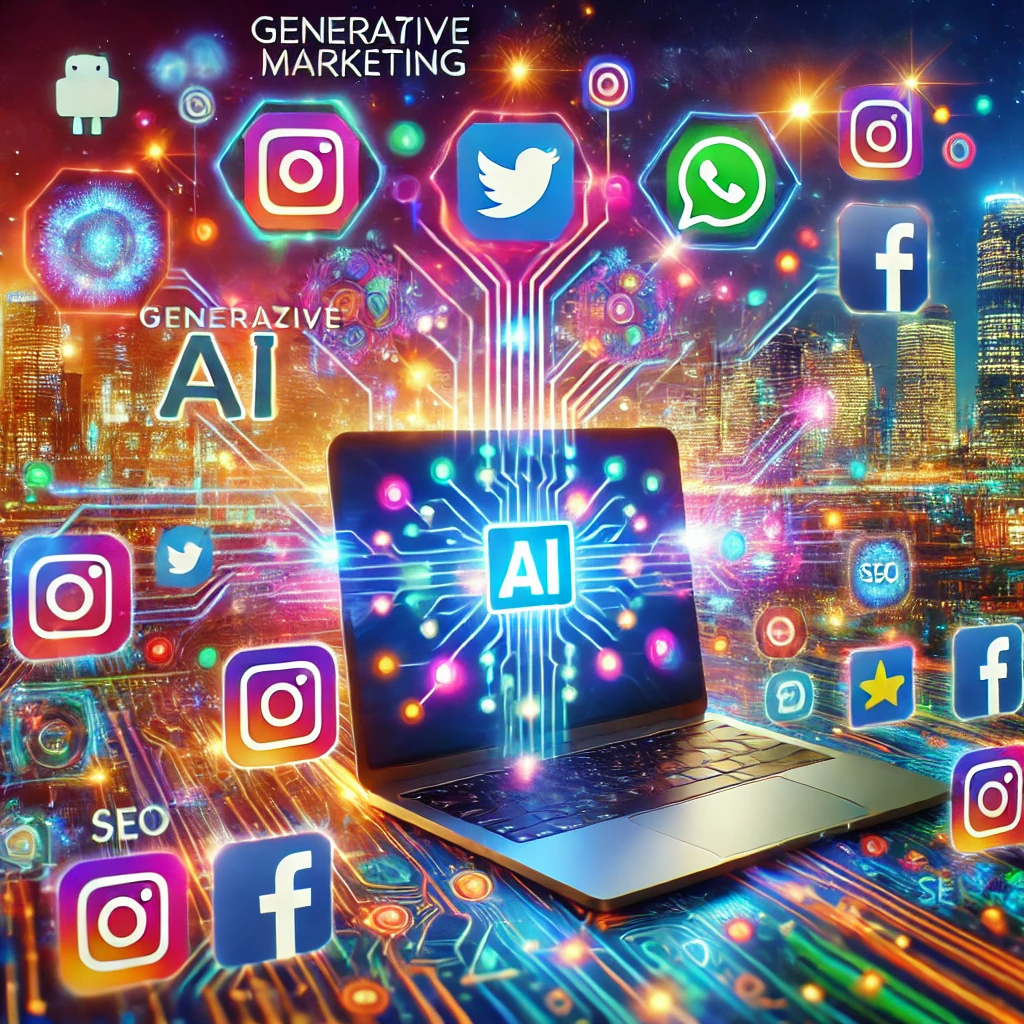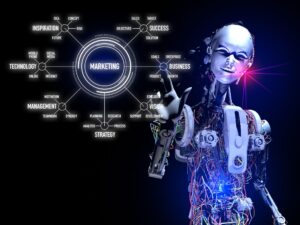In the digital age, technology is evolving at a breakneck pace, and one of the most exciting developments is generative artificial intelligence (AI). This innovative field has the potential to revolutionize various industries, particularly marketing and social media. In this blog, we will explore the concept of generative AI, how it works, and how it can be harnessed to enhance marketing strategies and boost engagement on platforms like Instagram, Facebook, and others.
Understanding Generative AI
Generative AI refers to a category of artificial intelligence algorithms that can create new content. Unlike traditional AI, which relies on analyzing existing data to make predictions or decisions, generative AI can produce new, original content. This includes text, images, music, and even videos. The most well-known examples of generative AI are models like GPT (Generative Pre-trained Transformer) by OpenAI and GANs (Generative Adversarial Networks).
How Generative AI Works
Generative AI models are trained on large datasets and use complex algorithms to understand patterns and structures within that data. There are two primary types of generative AI:
- Generative Pre-trained Transformers (GPT):
- Training: GPT models are trained on massive amounts of text data from the internet. They learn grammar, context, facts, and even some reasoning abilities.
- Generation: When given a prompt, GPT models can generate coherent and contextually relevant text by predicting the next word in a sequence. This allows them to write articles, create dialogue, and even compose poetry.
- Generative Adversarial Networks (GANs):
- Structure: GANs consist of two neural networks, the generator and the discriminator, which are trained together. The generator creates new data instances, while the discriminator evaluates them.
- Training: The generator tries to produce data that is indistinguishable from the real data, and the discriminator attempts to identify whether the data is real or generated. Through this adversarial process, the generator improves its ability to create realistic content.
Applications of Generative AI in Marketing
Marketing is all about creating compelling content that resonates with your audience. Generative AI can significantly enhance this process by automating content creation, personalizing marketing efforts, and optimizing strategies. Here are some key applications:
1. Content Creation
Generative AI can produce a wide range of marketing content, from blog posts and social media updates to product descriptions and email campaigns. This automation can save time and resources, allowing marketers to focus on strategy and creativity.
- Blog Posts: AI can generate informative and engaging blog posts on various topics, ensuring a steady stream of content for your audience.
- Social Media Updates: AI-generated content can help maintain an active presence on social media platforms by providing regular updates, captions, and even responses to comments.
- Product Descriptions: For e-commerce businesses, AI can create unique and persuasive product descriptions that highlight features and benefits.
2. Personalization
Personalized marketing is more effective because it targets individual preferences and behaviors. Generative AI can analyze user data to create tailored content that speaks directly to each customer.
- Email Campaigns: AI can draft personalized email campaigns that address the recipient by name, recommend products based on past purchases, and offer special deals tailored to their interests.
- Targeted Ads: By analyzing user behavior, generative AI can create highly targeted advertisements that are more likely to convert.
3. Social Media Engagement
Social media platforms are crowded spaces where standing out requires creativity and consistency. Generative AI can help boost engagement by creating captivating content and interacting with followers.
- Visual Content: AI can generate eye-catching images, graphics, and videos that are tailored to your brand’s aesthetic, making your social media posts more appealing.
- Interactive Bots: AI-powered chatbots can engage with followers by answering questions, providing recommendations, and even entertaining users with interactive content.
4. SEO Optimization
Search engine optimization (SEO) is crucial for driving organic traffic to your website. Generative AI can assist in creating SEO-friendly content that ranks higher in search engine results.
- Keyword Optimization: AI can analyze search trends and suggest relevant keywords to include in your content.
- Content Structure: Generative AI can help structure your content in a way that is more likely to be picked up by search engine algorithms, improving your overall SEO strategy.
Boosting Social Media Presence with Generative AI
Instagram is a visually driven platform where high-quality images and engaging captions are essential. Generative AI can enhance your Instagram presence in several ways:
- Content Scheduling: AI can generate and schedule posts at optimal times to maximize engagement.
- Hashtag Generation: AI can suggest relevant hashtags to increase the visibility of your posts.
- Story Creation: AI can create compelling Instagram Stories that capture the essence of your brand and keep your audience engaged.
Facebook’s diverse audience and versatile content options make it an ideal platform for generative AI applications:
- Post Creation: AI can generate posts that cater to different segments of your audience, from promotional content to informative articles.
- Ad Campaigns: AI can create and manage ad campaigns that target specific demographics, interests, and behaviors.
- Messenger Bots: AI-powered chatbots can handle customer inquiries, provide support, and even facilitate sales directly through Facebook Messenger.
Other Platforms
Generative AI can also be applied to other social media platforms like Twitter, LinkedIn, and TikTok:
- Twitter: AI can generate tweets that are timely and relevant, helping you maintain an active presence and engage with trending topics.
- LinkedIn: AI can create professional content tailored to your industry, from thought leadership articles to job postings.
- TikTok: AI can generate ideas for short, engaging videos that align with current trends and resonate with your target audience.
Case Studies: Success Stories of Generative AI in Marketing
1. The New York Times
The New York Times uses generative AI to produce short summaries of articles, helping readers quickly understand the content and decide if they want to read the full piece. This has improved user engagement and time spent on the site.
2. Starbucks
Starbucks uses AI to create personalized marketing campaigns. By analyzing customer data, AI generates tailored offers and recommendations, resulting in higher customer satisfaction and increased sales.
3. Sephora
Sephora uses AI-powered chatbots to provide personalized beauty advice and product recommendations to customers. These chatbots enhance the shopping experience by offering instant, relevant assistance.
The Future of Generative AI in Marketing
The potential of generative AI in marketing is immense, and we are only beginning to scratch the surface. Here are some future trends to watch:
- Advanced Personalization: As AI algorithms become more sophisticated, the level of personalization in marketing will reach new heights, creating hyper-targeted content that feels genuinely human.
- Real-time Content Generation: AI will be able to generate content in real-time, allowing brands to respond to trending topics and events instantly.
- Enhanced Creativity: AI will assist human creators by providing inspiration and suggestions, leading to more innovative and engaging marketing campaigns.
Challenges and Considerations
While generative AI offers numerous benefits, there are also challenges and ethical considerations to keep in mind:
- Quality Control: Ensuring the quality and accuracy of AI-generated content is crucial. Human oversight is necessary to review and edit content before publishing.
- Ethical Use: The use of AI should be ethical and transparent. Misleading or manipulative AI-generated content can damage a brand’s reputation and erode trust.
- Data Privacy: Protecting user data is essential. AI models should be designed with privacy in mind, ensuring that personal information is not misused or mishandled.




